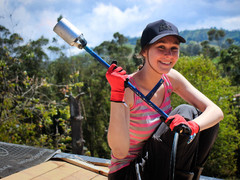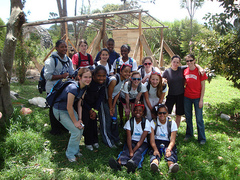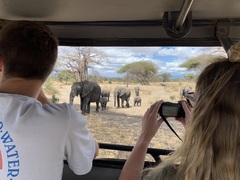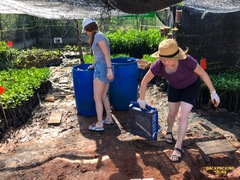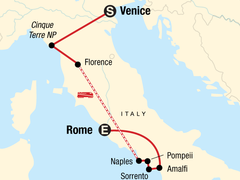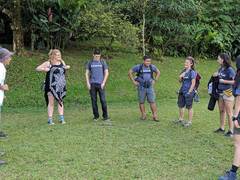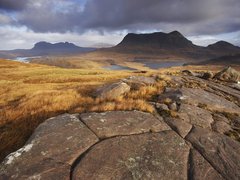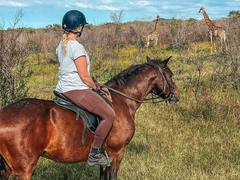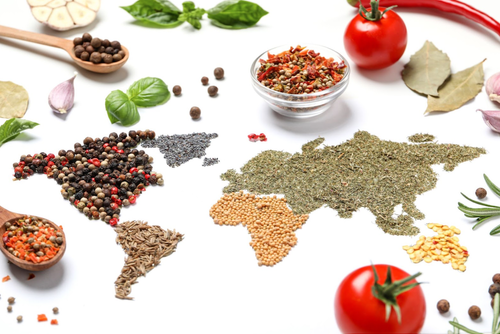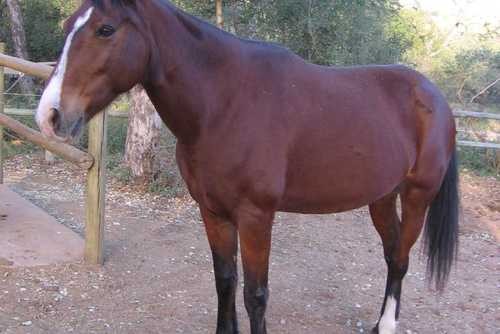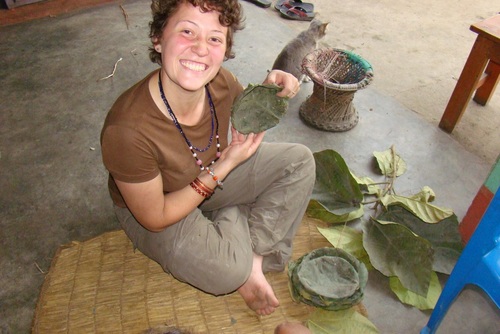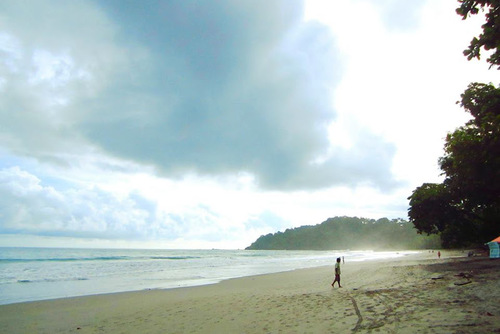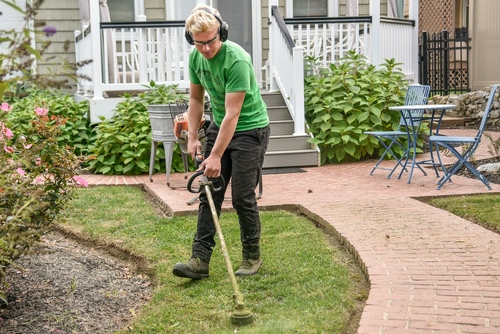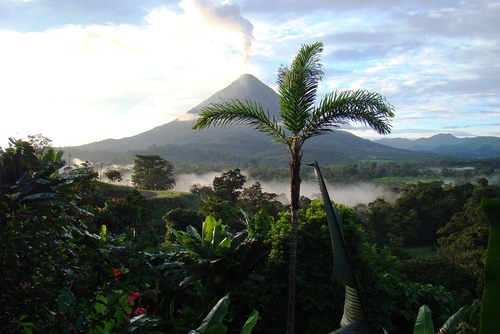We are an Educational Institute where individuals can learn how to milk a cow, harvest a mango tree, or use medicinal herbs. La Gran Vista gives everyone an opportunity to learn about life at its most basic form and exist in a fully sustainable community. We are happy to receive volunteers, student groups, families, and environmental interns from abroad. In addition, eco-tourism organizations send groups of volunteers to La Gran Vista every year to participate in the project.
We offer opportunities for undergraduate groups, ASB, graduate students, and researchers to pursue specific interests or field work pertaining to sustainability and organic farming. Students looking to pursue a career in sustainability will have the opportunity to have practical experience that will be invaluable to their future endeavors. We believe that the best way to preserve our Planet is for everyone to be active and lend a helping hand to Mother Nature.
The problems are right in front of us, from greenhouse gases to massive landfills, pesticides in our food, and unclean drinking water, making it EVERYONE’S responsibility to wake up and live a more responsible life. We cannot change the world in a day, but if we all do our part, we can change the course of history. So start today and join us in our attempt to create a more sustainable future.
Background
With stunning views of El Valle de General and Costa Rica’s tallest mountains, including Mount Chirripo, La Gran Vista Agricultural Ecological Farm is well named. It is situated in the county of Perez Zeledon, three hours south of San Jose, the capital of Costa Rica, in an area of outstanding natural beauty. Protected forests, sublime beaches and fabulous waterfalls can all be found nearby.
Finca La Gran Vista was established on January 16, 2001, as a non-profit project with the aim of spreading awareness of environmentally sustainable agricultural methods to other farmers in the region. It is intended to provide an example for other farms of how the following practices can be employed successfully:
- Organic farming.
- Soil regeneration and conservation.
- Natural herbicides.
- Natural pesticides.
- Enhancement of the natural environment.
- Worm composting.
- Medicinal herbs.
- Reforestation methods and seed saving.
- Biogas Producction
- Others topics.
Staff
The manager of the project, Donald Villalobos, is an agricultural engineer who has worked with the Ministry of Agriculture for over 34 years and has seen first hand how traditional farming practices have contributed to habitat degradation in Costa Rica. To bring about change in the way agriculture is practised, it must be demonstrated to the farmers that the new practices are superior to those currently in use.
In an effort to foster this kind of change, Donald has set about creating an ecologically friendly farm that uses the land sustainably; in doing so, he has virtually eliminated soil erosion on his property. The finca receives volunteers regularly throughout the year from across the world, and particularly from the USA, Canada, England and Australia. Their involvement is invaluable to the development of the farm and to the fulfillment of the main goals Donald has set.
Over the years the finca has been fortunate enough to receive volunteers from English and Amarican companies, foreign students at Spanish language schools in Costa Rica and ecology students. Notable recent achievements include constructing an electric fence, digging a frog pond, excavating a special site to produce natural biogas, replanting grass, constructing a spacious living area for volunteers at the front of the main building, constructing terraces, planting trees and repainting the school and church in the community, El Peje.
The farm is run by a family of five: Xinia, Donald, Max, Larry, and Terry. Finca La Gran Vista is twelve acres in extent, and accommodates horses, chickens, ducks, medicinal plants, fruit trees, grass for forage, several crop species, spring-water wells, an area of rainforest, red worm composting for soil regeneration, and a pond. Background of the Project: The main aim of this project is to provide a working example of a farm that operates in a sustainable manner, removing the need to clear new areas of forest.
Tasks
Each volunteer task has been specially chosen and rigourously prepared to help ingrain the values of the farm and the ethos it engenders – that is, maximizing farm production in a highly sustainable, ecological way. Specifically, the goals of the project are:
- Soil conservation measures (construction of terraces, planting of soil-binding grasses);
- Pasture rehabilitation and fence construction;
- Vegetable cultivation in raised beds;
- Treatment of structural wood in the farm buildings to protect from termites;
- Construction and subsequent maintenance of greenhouses;
- Planting of fruit-bearing trees;
- Reforestation of trees native to the area;
- Sharing of ideas with visiting local farmers;
- Sharing of ideas with visiting local children and foreign students on ecological school tours;
- Managing free-range poultry;
- Cultivation of the Californian Red Worm for the enrichment of organic fertilizers;
- Showing visitors the multiple uses that certain plants have, as treatment for both human health and plant welfare;
- Fabrication of composts using materials grown on the farm;
- Involving the volunteers in activites that allow for a greater appreciation of Costa Rican culture.
Location
The area in which the project is situated has certain geomorphological characteristics. For instance, the soils belong to the Ultisoles order, class VI in the Capacidad de Uso classification, whose traits include an argilic surface with 20% clay content, less than 35% base saturation, generally deep, well drained, low in fertility and red in colour.
Volunteer Work
The work will include construction, feeding the animals, planting seeds, soil conservation, maintenance of medicinal plants, using and producing organic fertilizer, maintaining the spring-water wells, and harvesting crops. Each morning you will find a whiteboard with the day’s tasks, which will be assigned by Donald The work is at times challenging, but volunteers have invariably found it stimulating and rewarding. Please respect the instructions of the staff, and leave tools such as shovels and hammers clean and in their correct places inside the tool shed, along with boots or work shoes. There are several projects on which the volunteers will be working while at Finca La Gran Vista. They include:
- Soil remediation. The pasture area on the farm is heavily degraded, with little natural vegetation and substantial areas of bare soil. Unwanted grass species currently there will need to be removed, the soil prepared for grass plugs (lots of digging), and then the plugs will need to be planted by hand. In addition, Donald installed an electric fence, which, apart from the wiring, was done by the volunteers. Every so often, volunteers will need to help trim down any weeds tangled in the wires and to restore a safe distance between the wires, to prevent them from intertwining. Moreover, each year, volunteers sow seeds in patches of soil where plants don’t already grow.
- Medicinal herb plot. There is currently a medicinal herb plot with approximately 75 plants, for the production of natural shampoos, insect repellents, and herbal remedies. This will be a labor-intensive job requiring grass removal from the new lot, soil preparation, and transplanting the herbs by hand. In the future, Donald plans to harvest, prune, fertilise and process the plants for the finca’s, and sometimes even for the volunteers’, consumption. The volunteers will also help process plants for the production of tea leaves, using a wood mill constructed on the farm.
- Solar dryer. Future volunteers will help with the construction of a solar dryer, a structure covered with a special type of plastic to gauge the ideal temperature to dry medicinal plants.
- Terrace construction and maintenance. The farm maintains a terrace system on the land in order to slow erosion and prevent soil loss. There is a need for more terraces to be built, as well as some renovation of the older terraces, particularly in the orchard area. In addition, volunteers will help by planting Vetiver grass (a species with soil-binding properties) above the terraces; another activity in which the volunteers can participate is the preservation of the terraces, from raking leaves to moving loose soil.
- Vegetable plot. Volunteers will learn how to plant and cultivate a variety of vegetables organically, including tomatoes, beans, lettuce, radishes, chiles, and cilantro. This part of the project will also tie in with compost production, for which the farm uses California Red Worms.
- Biogas production. The farm currently cooks using propane and wood as fuels. The energy source Donald favours the most, however, and the one that the finca is building towards, is natural biogas (methane). Since the volunteer-assisted construction of a specially excavated site that produces it, Donald hopes that, in the near future, biogas will act as the finca’s sole source of energy. As volunteers undertake their project, they will have a chance to learn about an alternative energy source and how it works.
- Termite-proofing. The house and shop were built by the family, with trees that Donald and Xinia planted over ten years ago. The volunteers will apply a protective wood treatment to both structures. This is an annual process Donald and Xinia have carried out since the finca’s construction.
- Frog pond. There is a worldwide decline in amphibians, one of the major causes of which is the decimation of wetland areas. As such, a frog pond, stocked with natural plants and native frog species, has recently been dug, an innovation of the finca volunteers are very much encouraged to help maintain and safeguard.
- Fish Pond. To get protein on the diet, La Gran Vista Staff are growing “ Tilapia fish”, now are starting a new lot of fish.
- Other tasks. Although the above projects take priority, there are other tasks on which the volunteers can lend a hand, including cutting and chopping wood for the kitchen stove. If the students are interested, they can help Xinia to make natural shampoo and/or insect repellent from herbs one evening. In addition, there will be several other duties essential to the farm. For instance, the chickens and ducks require food and water every morning, and their eggs need to be collected. Another possiblilty is feeding the animals (chickens, horses, cows), milking the cow and making cheese or yoghurt.


